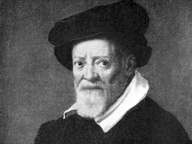Il mondo in una tazza. Storie di porcellana

Il mondo in una tazza. Storie di porcellana
Dal 30 January 2015 al 28 June 2015
Torino
Luogo: Palazzo Madama
Indirizzo: piazza Castello
Orari: da martedì a sabato 10-18; domenica 10-19
Costo del biglietto: intero € 10, ridotto € 8, gratuito ragazzi fino ai 18 anni e abbonati Musei Torino Piemonte
Telefono per informazioni: +39 011 4433501
Sito ufficiale: http://www.palazzomadamatorino.it
Palazzo Madama presenta dal 30 gennaio al 19 aprile 2015 un percorso dedicato alla storia della tazza, attingendo dalle ricche collezioni di arte decorativa conservate in museo.
Filo conduttore dell'esposizione è la tazzina: da tè, da caffè e da cioccolata. Oggetto legato indissolubilmente all'introduzione in Europa delle bevande calde provenienti dall'Oriente e dal Nuovo Mondo e al materiale esotico e prezioso per eccellenza, la porcellana.
A Palazzo Madama una sequenza di tazze, a partire dai blancs-de-chine, ovvero le porcellane bianche cinesi prodotte a Dehua, mostra l'evoluzione delle forme e la varietà dei decori nelle tazzine prodotte dalle manifatture europee nel Settecento: dai motivi di origine cinese e giapponese, a quelli tratti dai libri di storia naturale, ai paesaggi derivati da incisioni olandesi e tedesche, fino alle scene mitologiche e della letteratura cavalleresca. Contestualmente la mostra è un’occasione per raccontare, per casi esemplari, la storia della porcellana, delle sue particolarità produttive, della qualità della pasta e dei colori. Il valore socialmente rappresentativo della porcellana emerge anche grazie all'esposizione di alcuni servizi araldici, conservatisi integri per il loro valore altamente simbolico legato al passato illustre della casata oppure smembrati e dispersi sul mercato antiquario. Una vetrina è dedicata alla principale manifattura di porcellana operante in Piemonte nel Settecento, la Real fabbrica delle porcellane di Vinovo, fondata nel 1776 grazie all'intraprendenza di un torinese, Giovanni Vittorio Brodel, e di un ceramista di Strasburgo, Pierre-Antoine Hannong, e poi rilevata nel 1780 dal medico e chimico torinese, Vittorio Amedeo Gioanetti. In un'altra vetrina, l'artista Matilde Domestico, che da anni conduce ricerche sul tema della porcellana, ambienta l'installazione Esistenza di porcellana, che si ispira alle poesie di Emily Dickinson. Il lavoro dell’artista unisce oggetti e frammenti di carta e di porcellana su cui emergono parole in acciaio. Intorno una superficie di polvere di marmo di Carrara, il caolino, un materiale refrattario. Tutti gli elementi nel complesso rimandano all’idea di fabbrica, a una realtà viva e produttiva. In sottofondo una base sonora composta dalla sovrapposizione ed elaborazione di rumori meccanici, suoni metallici ripetitivi registrati all'interno dei reparti di fabbricazione dell'Industria Porcellane IPA, si propaga tra le tintinnanti ceramiche antiche e contemporanee.
L’esposizione si riallaccia al tema della porcellana torinese al centro di Fascino e splendore della porcellana di Torino mostra curata da Andreina d'Agliano e Cristina Maritano che apre in contemporanea alla Fondazione Accorsi-Ometto e che presenta ben 90 opere provenienti dalle collezioni di Palazzo Madama . Le due esposizioni offrono nel complesso un vero e proprio percorso cittadino dedicato al tema della porcellana.
Filo conduttore dell'esposizione è la tazzina: da tè, da caffè e da cioccolata. Oggetto legato indissolubilmente all'introduzione in Europa delle bevande calde provenienti dall'Oriente e dal Nuovo Mondo e al materiale esotico e prezioso per eccellenza, la porcellana.
A Palazzo Madama una sequenza di tazze, a partire dai blancs-de-chine, ovvero le porcellane bianche cinesi prodotte a Dehua, mostra l'evoluzione delle forme e la varietà dei decori nelle tazzine prodotte dalle manifatture europee nel Settecento: dai motivi di origine cinese e giapponese, a quelli tratti dai libri di storia naturale, ai paesaggi derivati da incisioni olandesi e tedesche, fino alle scene mitologiche e della letteratura cavalleresca. Contestualmente la mostra è un’occasione per raccontare, per casi esemplari, la storia della porcellana, delle sue particolarità produttive, della qualità della pasta e dei colori. Il valore socialmente rappresentativo della porcellana emerge anche grazie all'esposizione di alcuni servizi araldici, conservatisi integri per il loro valore altamente simbolico legato al passato illustre della casata oppure smembrati e dispersi sul mercato antiquario. Una vetrina è dedicata alla principale manifattura di porcellana operante in Piemonte nel Settecento, la Real fabbrica delle porcellane di Vinovo, fondata nel 1776 grazie all'intraprendenza di un torinese, Giovanni Vittorio Brodel, e di un ceramista di Strasburgo, Pierre-Antoine Hannong, e poi rilevata nel 1780 dal medico e chimico torinese, Vittorio Amedeo Gioanetti. In un'altra vetrina, l'artista Matilde Domestico, che da anni conduce ricerche sul tema della porcellana, ambienta l'installazione Esistenza di porcellana, che si ispira alle poesie di Emily Dickinson. Il lavoro dell’artista unisce oggetti e frammenti di carta e di porcellana su cui emergono parole in acciaio. Intorno una superficie di polvere di marmo di Carrara, il caolino, un materiale refrattario. Tutti gli elementi nel complesso rimandano all’idea di fabbrica, a una realtà viva e produttiva. In sottofondo una base sonora composta dalla sovrapposizione ed elaborazione di rumori meccanici, suoni metallici ripetitivi registrati all'interno dei reparti di fabbricazione dell'Industria Porcellane IPA, si propaga tra le tintinnanti ceramiche antiche e contemporanee.
L’esposizione si riallaccia al tema della porcellana torinese al centro di Fascino e splendore della porcellana di Torino mostra curata da Andreina d'Agliano e Cristina Maritano che apre in contemporanea alla Fondazione Accorsi-Ometto e che presenta ben 90 opere provenienti dalle collezioni di Palazzo Madama . Le due esposizioni offrono nel complesso un vero e proprio percorso cittadino dedicato al tema della porcellana.
SCARICA IL COMUNICATO IN PDF
COMMENTI

-
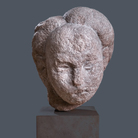 Dal 20 February 2026 al 19 July 2026
Roma | Mercati di Traiano Museo dei Fori Imperiali
Dal 20 February 2026 al 19 July 2026
Roma | Mercati di Traiano Museo dei Fori Imperiali
Constantin Brâncuși. Le origini dell’Infinito
-
 Dal 18 February 2026 al 19 July 2026
Padova | Centro Culturale Altinate | San Gaetano
Dal 18 February 2026 al 19 July 2026
Padova | Centro Culturale Altinate | San Gaetano
M.C. ESCHER. Tutti i capolavori
-
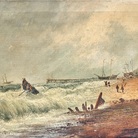 Dal 14 February 2026 al 31 May 2026
Parma | Palazzo Tarasconi
Dal 14 February 2026 al 31 May 2026
Parma | Palazzo Tarasconi
Impressionisti: 100 anni di riflessi. Gli Impressionisti da Monet a Bonnard
-
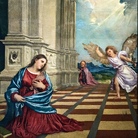 Dal 14 February 2026 al 16 April 2026
Ancona | Pinacoteca Civica Francesco Podesti
Dal 14 February 2026 al 16 April 2026
Ancona | Pinacoteca Civica Francesco Podesti
TIZIANO VECELLIO E LORENZO LOTTO. Due capolavori del Rinascimento alla Pinacoteca Civica di Ancona per due mostre studio
-
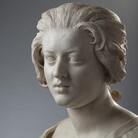 Dal 12 February 2026 al 14 June 2026
Roma | Galleria Nazionale d’Arte Antica in Palazzo Barberini
Dal 12 February 2026 al 14 June 2026
Roma | Galleria Nazionale d’Arte Antica in Palazzo Barberini
BERNINI E I BARBERINI
-
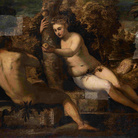 Dal 11 February 2026 al 7 June 2026
Venezia | Gallerie dell’Accademia
Dal 11 February 2026 al 7 June 2026
Venezia | Gallerie dell’Accademia
Tintoretto racconta la genesi. Ricerca, analisi e restauro
